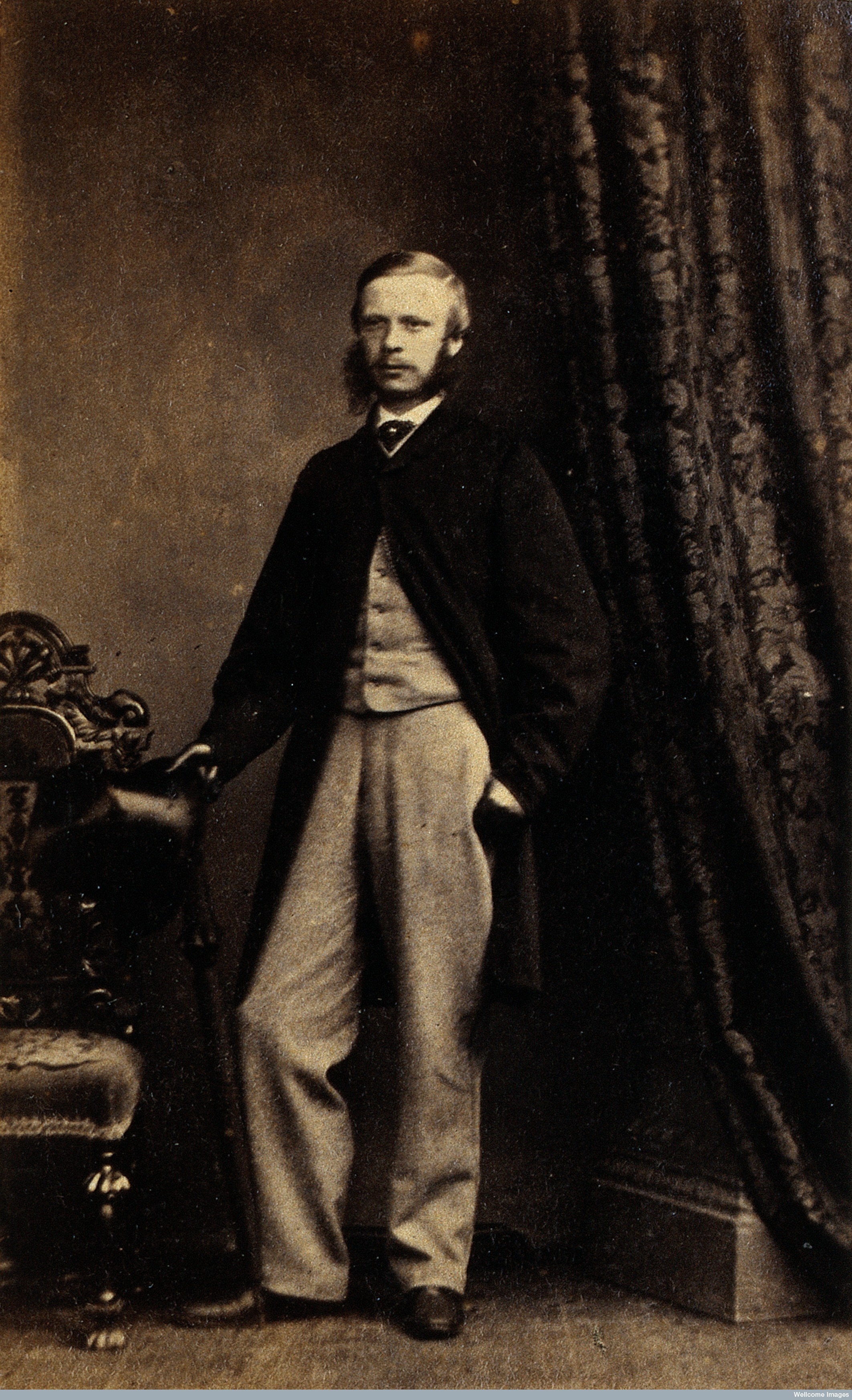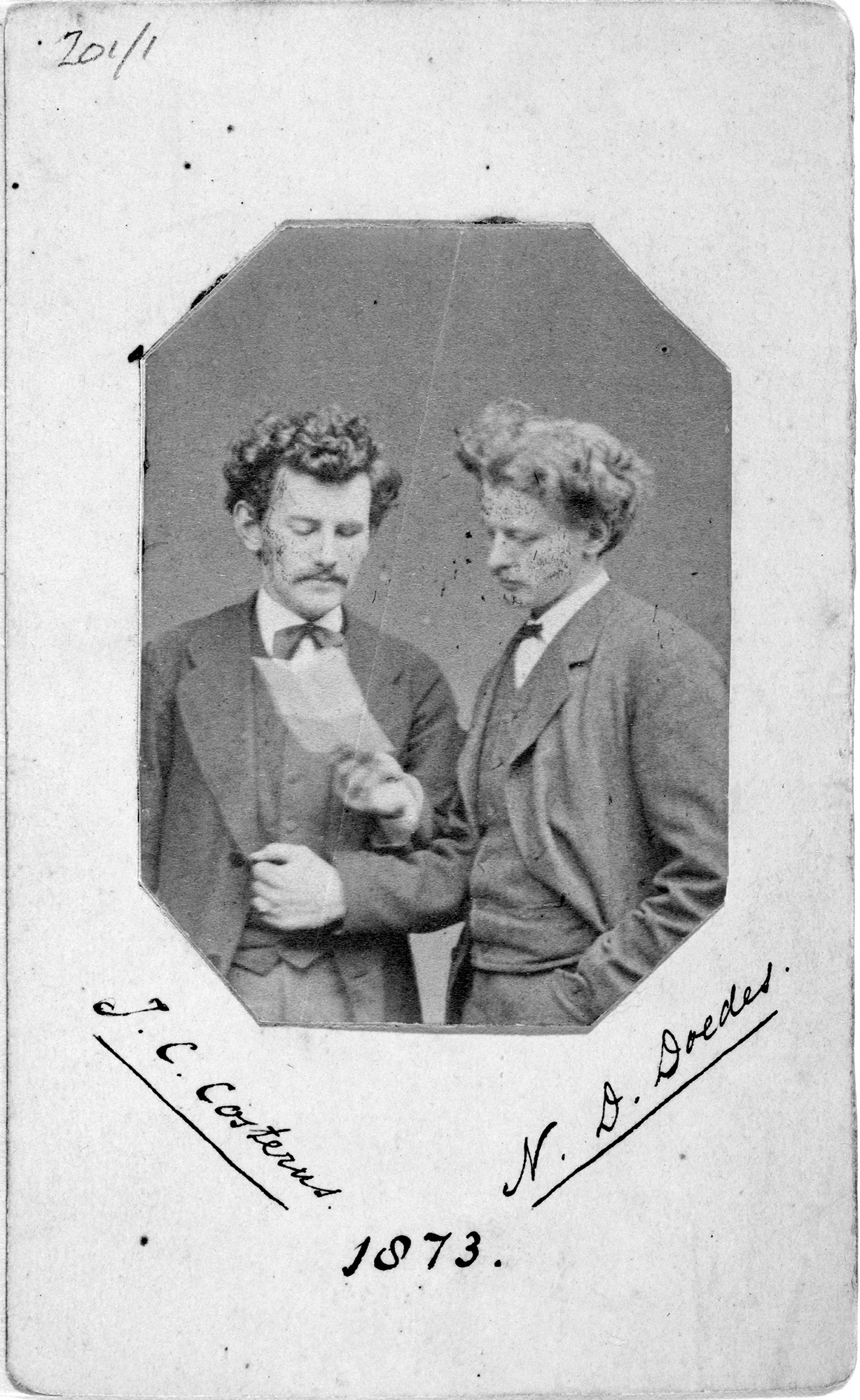Bad Request
Your browser sent a request that this server could not understand.
Apache Server at dcp-public.lib.cam.ac.uk Port 443

James Crichton-Browne
Summary
James Crichton-Browne became one of the most distinguished psychiatrists of the late nineteenth-century, but the letters he exchanged with Charles Darwin as the young and overworked superintendent of the largest mental asylum in England, are almost the…
Matches: 7 hits
- … James Crichton-Browne became one of the most distinguished psychiatrists of the late nineteenth …
- … researched human emotional expression, and reveal the lives of Crichton-Browne's patients - …
- … Darwin had recently resumed work on what became Descent of Man and selection in relation to sex …
- … and writing Expression; he sent lists and lists of questions and received immensely detailed …
- … getting information on subjects such as the bristling of the hair, baring of teeth, and blushing, in …
- … animals. In 1873 Crichton-Browne initiated a short exchange seeking Darwin’s support …
- … health of offspring. This cycle reveals Darwin’s role as a patron, an aspect of his contribution to …

Darwin's in letters, 1873: Animal or vegetable?
Summary
Having laboured for nearly five years on human evolution, sexual selection, and the expression of emotions, Darwin was able to devote 1873 almost exclusively to his beloved plants. He resumed work on the digestive powers of sundews and Venus fly traps, and…
Matches: 20 hits
- … on human evolution, sexual selection, and the expression of emotions, Darwin was able to devote 1873 …
- … in this botanical research, eventually renouncing plans for a medical career to become his father’s …
- … and he was clearly delighted by Francis’s decision. A large portion of the letters Darwin …
- … suggestions, observations, and occasional criticisms, some of which were incorporated in a later …
- … in science were manifest in his leading roles in creating a private memorial fund for Thomas Henry …
- … by revisions to Origin and corrections to the proofs of Expression . Taking up his research …
- … I omitted to observe, which I ought to have observed” ( letter to J. D. Hooker, 12 January [1873] …
- … and even electrical stimulation. On sending Darwin a specimen of the carnivorous Drosophyllum …
- … work your wicked will on it—root leaf & branch!” ( letter from J. D. Hooker, 12 January 1873 ) …
- … tentacles to bend inward, so that the plant closed like a fist. Darwin was fascinated by this …
- … seemed analogous to muscular contraction in animals: “a nerve is touched … a sensation is felt” ( …
- … parts of the flower would become modified & correlated” ( letter to T. H. Farrer, 14 August …
- … it again, “for Heaven knows when it will be ready” ( letter to John Murray, 4 May [1873] ). …
- … we take notes and take tracings of their burrows” ( letter from Francis Darwin, 14 August [1873] ) …
- … in importance; and if so more places will be created” ( letter to E. A. Darwin, 20 September 1873 …
- … our unfortunate family being fit for continuous work” ( letter from E. A. Darwin, 25 September …
- … on any point; for I knew my own ignorance before hand” ( letter to George Cupples, 28 April [1873] …
- … after his death in a second edition. A provincial doctor and asylum superintendent, Stanley Haynes, …
- … “he would fly at the Empr’s throat like a bulldog” ( letter from L. M. Forster to H. E. Litchfield, …
- … for research on diseases of the brain at the West Riding Lunatic Asylum, where he was director. He …


